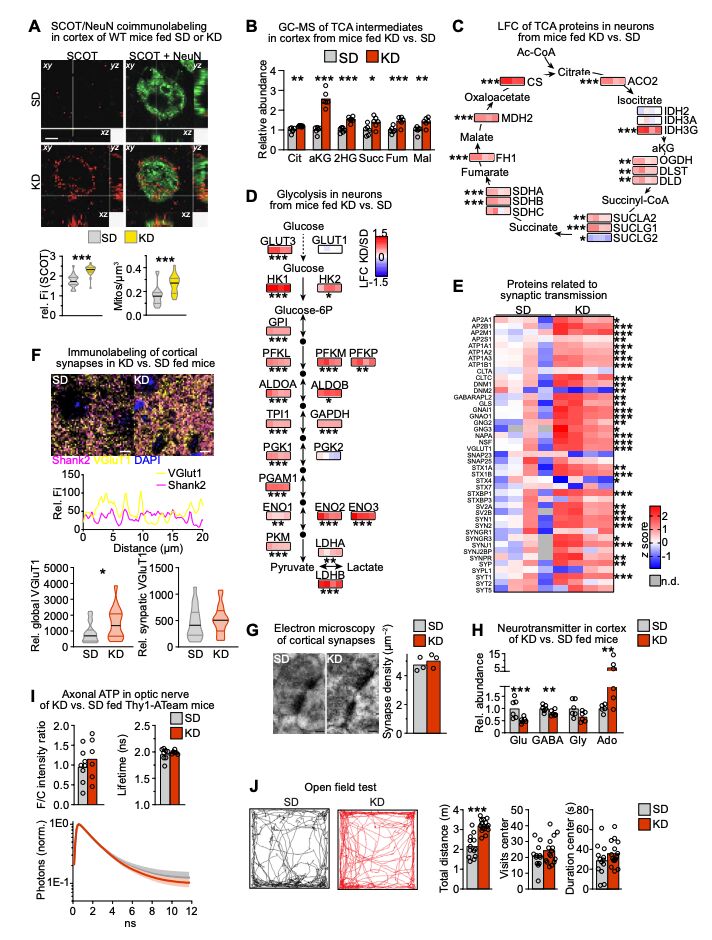Our antibodies to understand Ketogenic diet’s effect on brain cells
Article: "Ketogenic diet uncovers differential metabolic plasticity of brain cells"

Neuroscience: Ketogenic diet uncovers differential metabolic plasticity of brain cells.
The ketogenic diet is a low-carbohydrate, high-fat regime in which ketone bodies are utilized instead of glucose as an energy source.
When nutrition changes, the body, including the brain, reprograms its metabolism to maintain a balance, but how?
Düking et al. (2022) compared the effects of a ketogenic diet (KD) to a normal diet on cellular and behavioral parameters in young and adult mice.
At a cellular level, they found that the ketogenic diet strongly altered synapse remodeling and the proteome profile of cortical astrocytes, neurons, and microglia. In contrast, oligodendrocytes and endothelial cells largely overlapped, implying that the degree of diet-induced adaptations was minor in these cell types.
They also found:
- slower body weight gain of KD-fed animals
- brain growth not delayed in KD-fed animals
- comparable brain weight in both dietary conditions
- equivalent performance and neurocognitive abilities in both dietary conditions
🔬 Our Anti-CNP (AMAb91072) monoclonal and Anti-ACO2 (HPA001097) polyclonal antibodies were used in this study.
Read full article here.
Find out more about our anti-CNP (AMAb91072) monoclonal and anti-ACO2 (HPA001097) polyclonal antibodies.
